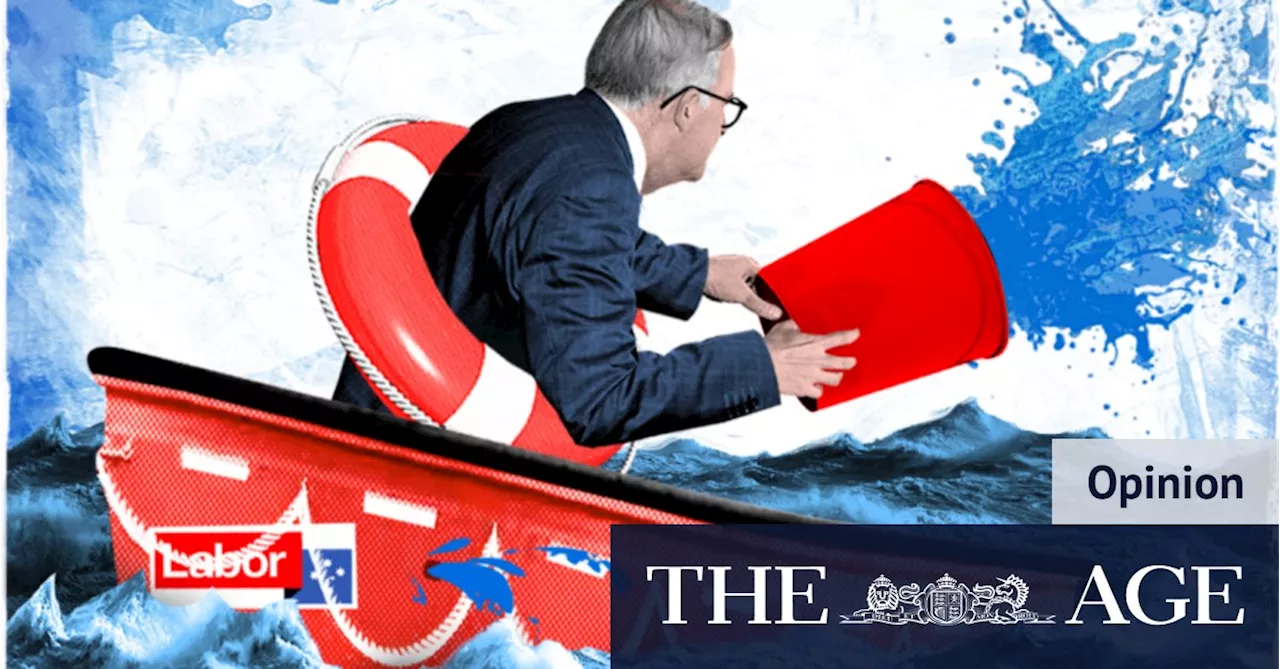As the 2024 election nears, Prime Minister Anthony Albanese has launched a desperate rescue mission to save his government, his party, and his legacy. Can his last-minute efforts be enough to overcome the challenges he faces?
Prime Minister Anthony Albanese has recently established a new rescue service. Its mission is to save his government, his party and his place in history. Don’t underestimate As 2024 neared a close, the penny finally dropped for the PM: the government was heading for the electoral precipice. Since then, he’s been all over the country making announcements, appearing in the media, calling a meeting of the national cabinet and generally being busy.
Compared with the languid, rhetorically diffuse way in which he’s presented himself since taking office, this looks like an all-stops-out effort. Which it should be, because that’s what it will take if the government is to survive. With at most four months to go until we vote, success is far from assured and there’s a decent chance that this more focused approach will prove to have been applied too late. It took a long time, well before the last election, for the government to get itself into this tough spot. Labor drew lessons from previous moments of difficulty and failure in this century, but it’s not clear they were the right ones. From its previous time in office, all but wrecked by the Gillard-Rudd leadership tussle, it concluded that future leaders should be almost fully protected from a party room challenge. From its defeats under Bill Shorten in 2016 and more particularly 2019, the lesson was: don’t be ambitious in policy, don’t attract enemies by challenging powerful interests. The combination of making the leader a king and pursuing a small-target strategy has sucked most of the dynamism out of the caucus and, it seems, the cabinet. It’s also sidelined the party at the grassroots; in recent times, it has become common practice for Albanese, members of the national executive and their state proxies to decide preselections. That was fine when things were going well, but not so much when they went awry. Who wants to risk the wrath of the monarch? What happened under Albanese was a departure from Labor’s traditional mission as the party that applied an honest critique to society and the economy, and sought to redress the worst inequities once it attained office. It was not afraid of big thinking and ambitious policies. Often, Labor governments were seen as noble failures. The Whitlam government is the best example, but its attempt to introduce universal healthcare, the forerunner to the Hawke government’s Medicare, stands as a great achievement. So too does the NBN under Kevin Rudd and the NDIS under Julia Gillard. Should this government fall and cede power to Peter Dutton, what would be its enduring legacy? This is what is concerning a lot of government MPs: are they about to become the Antipodean version of the Democrats in America, who let a poor situation develop into a bad and ultimately irretrievable one? What the government has achieved is much more than nothing, and it has avoided scandal to boot. It has delivered the stage 3 tax cuts to every taxpayer; repaired the industrial bargaining system; taken on wage theft and zombie contracts; improved pay for workers in aged care and child care; created the shared equity program for low-income families and the $10 billion Housing Australia Future Fund; reformed the Reserve Bank; tightened up and; introduced the National Anti-Corruption Commission; introduced a social media ban for under-16s; and legislated for wiping some student debts and a cap-and-trade scheme for heavy carbon emitters. Also, to try to reduce reliance on international supply chains and capitalize on emerging technologies, it has initiated the Future Made in Australia scheme, costed at $22.7 billion over 10 years. It’s a decent list. So why has every pollster and researcher found that in focus groups, voters struggle to nominate what the government has done for them? And why have the same pollsters found that since early 2023, the government has steadily lost popularity? The true believers, mostly drawn from the middle class, are at this point reaching the blame-the-media stage. In an ever-more fragmented media environment, that cannot be a sufficient explanation. In my view, the key reasons for the government’s popularity troubles include: failure at the outset to nominate as its greatest policy challenge the inequality and intergenerational wealth divide caused by the nation’s housing arrangements; the slowness to portray itself as the people’s defender when increasing grocery prices and rises in the cash rate laid bare this massive problem; the inability or unwillingness to explain where the government wants to take society and make the lives of its citizens better; a leader whose demeanor has suggested that he lacks energy and enjoys the trappings of office too much; and the folly of calling a referendum for which the public had not been prepared. Added to this has been Albanese’s communications problem
ANTHONY ALBANESE LABOR PARTY AUSTRALIAN POLITICS ELECTION 2024 GOVERNMENT CRISES PUBLIC POLICY POLITICAL COMMUNICATION
Australia Latest News, Australia Headlines
Similar News:You can also read news stories similar to this one that we have collected from other news sources.
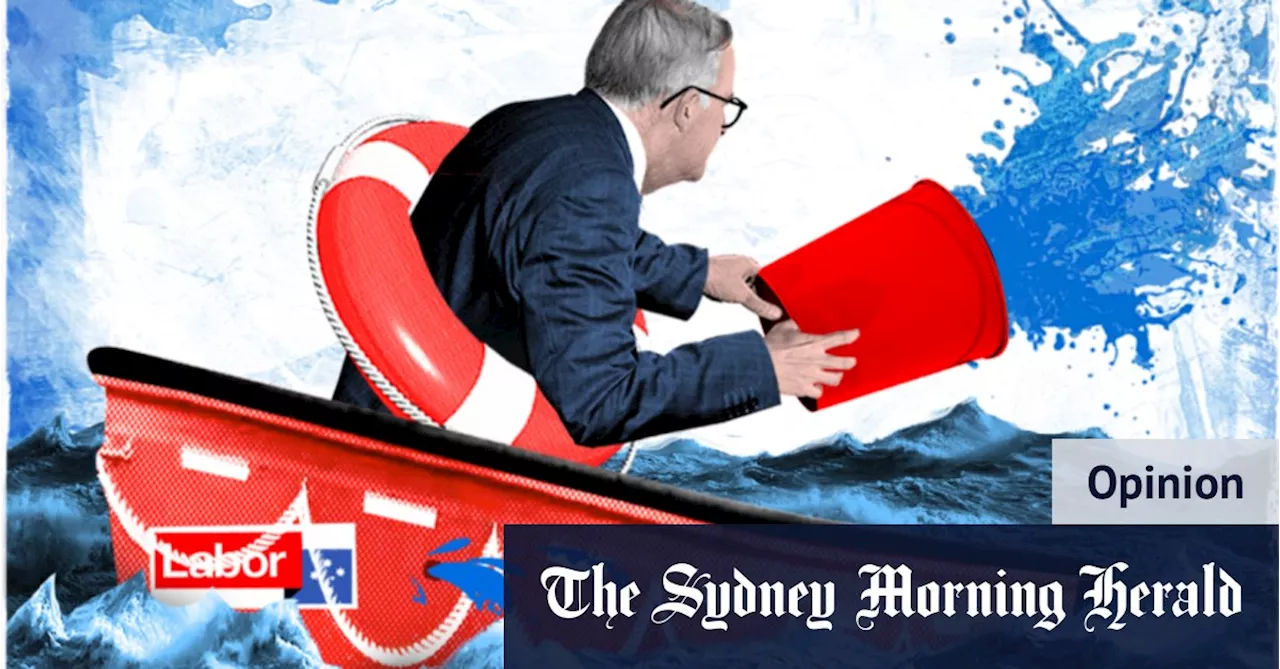 Albanese's Rescue Mission: Can Labor Avoid the Electoral Precipice?Prime Minister Albanese has launched a frantic rescue effort to save his government and Labor party from electoral disaster. With just months until the election, he faces a daunting challenge to reverse declining popularity and convince voters of his government's achievements. The article analyzes the government's missteps, including a failure to address inequality and a lack of clear policy direction, and questions whether Albanese's late push can be enough to secure victory.
Albanese's Rescue Mission: Can Labor Avoid the Electoral Precipice?Prime Minister Albanese has launched a frantic rescue effort to save his government and Labor party from electoral disaster. With just months until the election, he faces a daunting challenge to reverse declining popularity and convince voters of his government's achievements. The article analyzes the government's missteps, including a failure to address inequality and a lack of clear policy direction, and questions whether Albanese's late push can be enough to secure victory.
Read more »
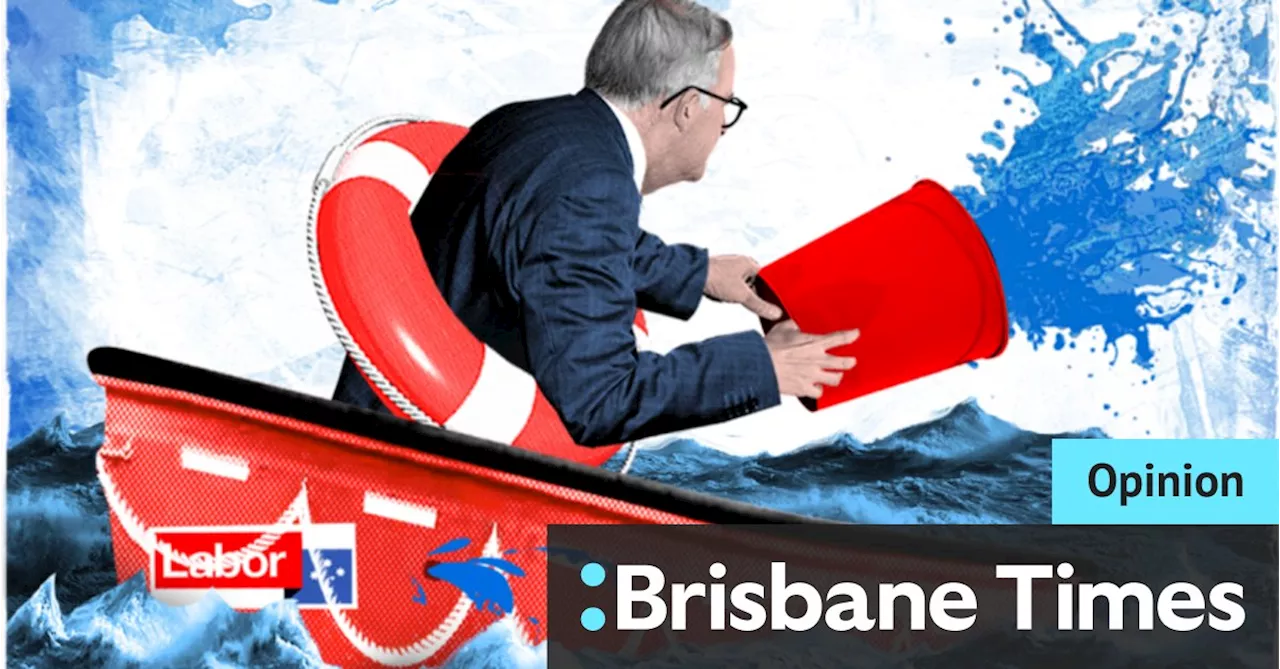 Albanese now realises he’s on a rescue mission to save the sinking shipThe prime minister has finally switched into gear. But with at most four months to go until we vote, there’s a decent chance that he has moved too late.
Albanese now realises he’s on a rescue mission to save the sinking shipThe prime minister has finally switched into gear. But with at most four months to go until we vote, there’s a decent chance that he has moved too late.
Read more »
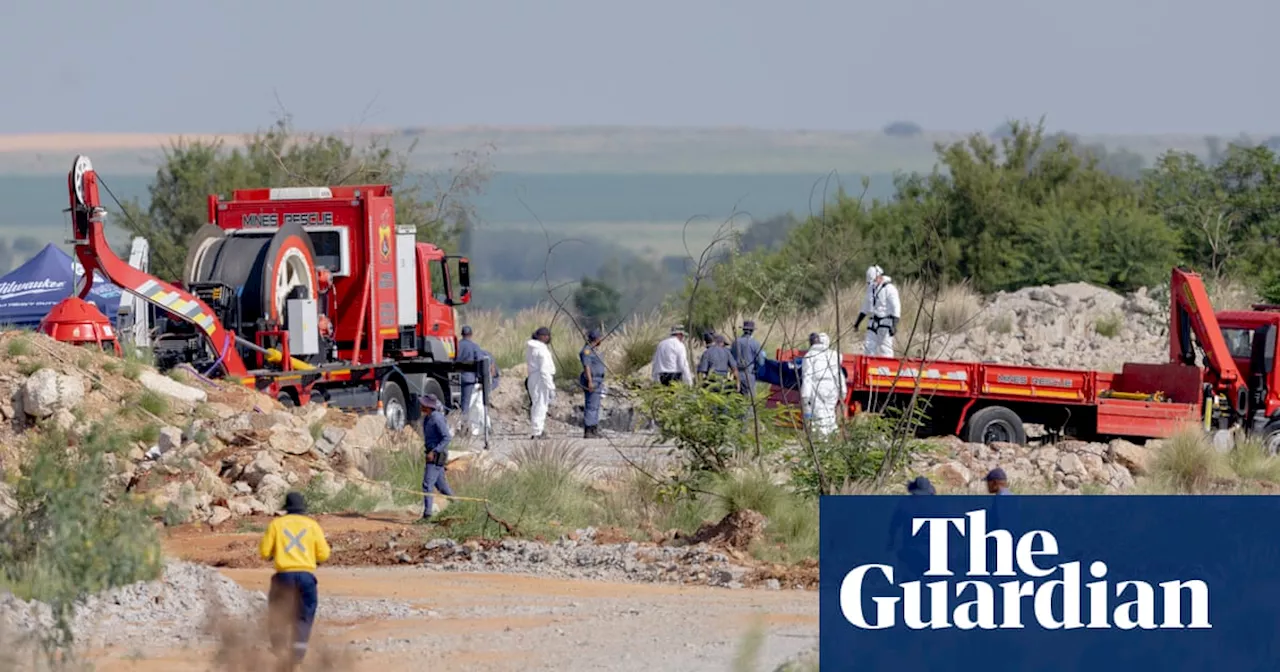 South Africa Launches Mission to Rescue Hundreds Trapped in Illegal Gold MineHundreds of miners are trapped in an abandoned gold mine in South Africa, prompting a government rescue mission. The operation follows a court case filed by the sister of one of the trapped miners, who claimed that 109 people had already died in the mine.
South Africa Launches Mission to Rescue Hundreds Trapped in Illegal Gold MineHundreds of miners are trapped in an abandoned gold mine in South Africa, prompting a government rescue mission. The operation follows a court case filed by the sister of one of the trapped miners, who claimed that 109 people had already died in the mine.
Read more »
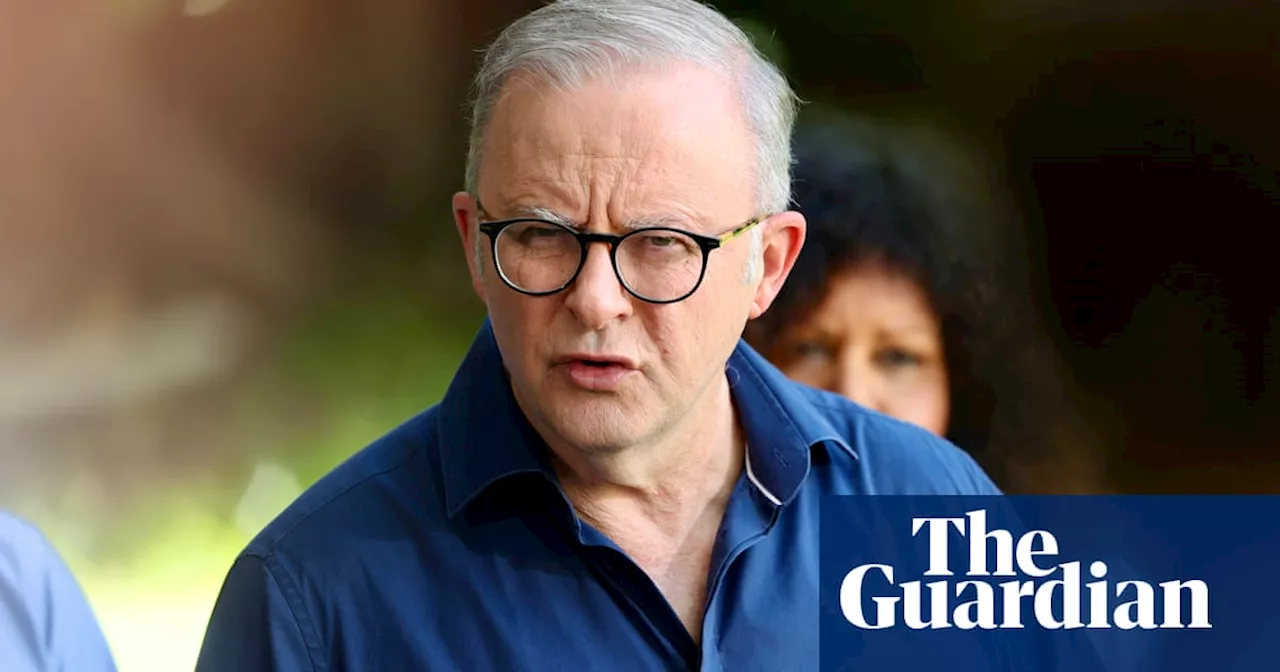 Albanese Hits the Campaign Trail as Election NearsPrime Minister Anthony Albanese launches his 2025 election campaign with a tour of key battleground seats.
Albanese Hits the Campaign Trail as Election NearsPrime Minister Anthony Albanese launches his 2025 election campaign with a tour of key battleground seats.
Read more »
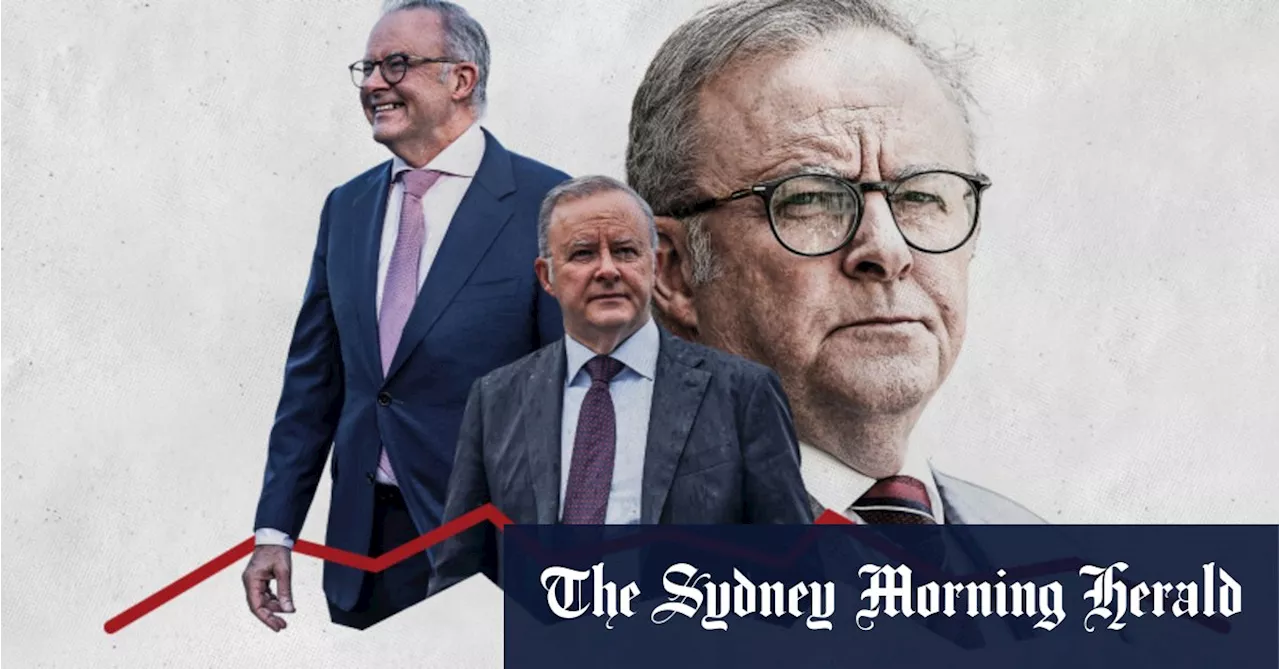 Albanese's Popularity Dips as Voters Seek Economic SolutionsThis article examines the recent decline in Prime Minister Anthony Albanese's popularity, attributing it to economic concerns and a perceived disconnect with voters. Despite his initial appeal as a relatable and genuine leader, Albanese now faces challenges in maintaining public support. The article analyzes the factors contributing to this shift, including rising living costs, a perception of economic stagnation, and a series of personal events that have raised questions about Albanese's closeness to everyday Australians.
Albanese's Popularity Dips as Voters Seek Economic SolutionsThis article examines the recent decline in Prime Minister Anthony Albanese's popularity, attributing it to economic concerns and a perceived disconnect with voters. Despite his initial appeal as a relatable and genuine leader, Albanese now faces challenges in maintaining public support. The article analyzes the factors contributing to this shift, including rising living costs, a perception of economic stagnation, and a series of personal events that have raised questions about Albanese's closeness to everyday Australians.
Read more »
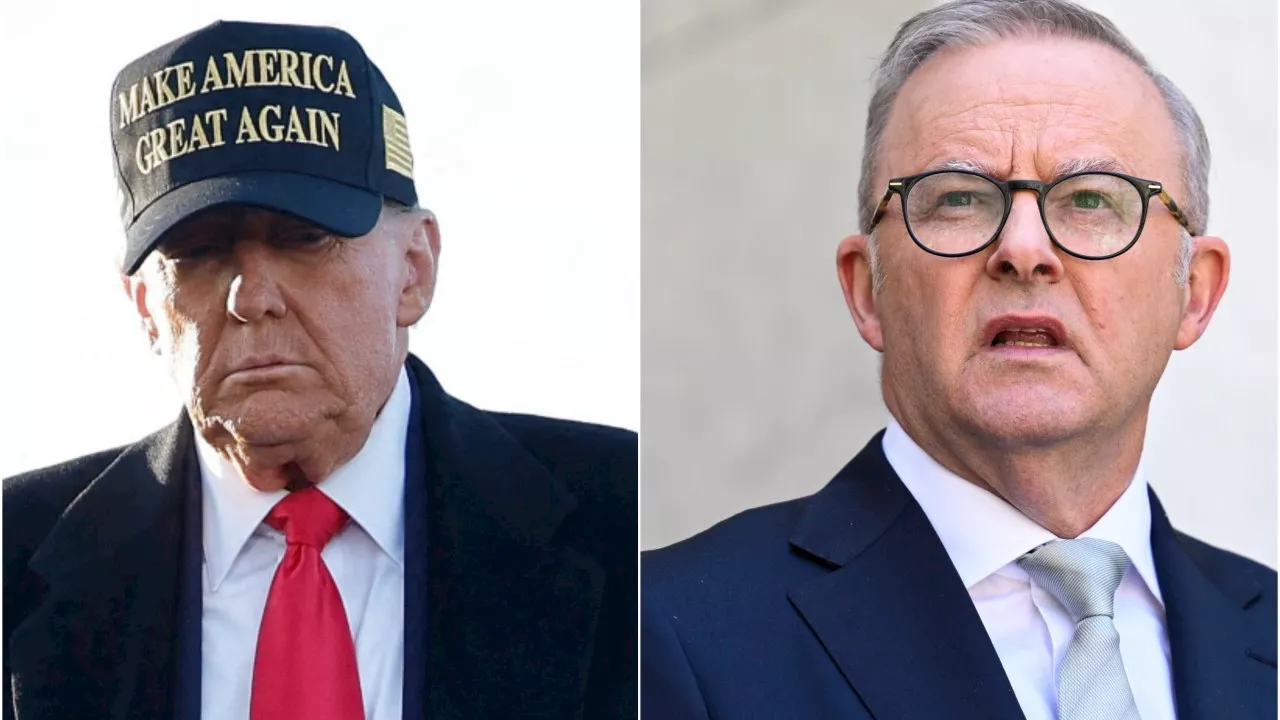 Albanese Delays Trump Meeting Until 2025, Sparks CriticismPrime Minister Anthony Albanese's indication that he may not meet with US president-elect Donald Trump until late 2025 has drawn criticism from the Coalition and calls for an immediate invitation. While noting that Australian Foreign Minister Penny Wong will attend Trump's inauguration in January, Albanese offered no timeline for a face-to-face meeting. This delay has sparked debate over diplomatic protocol and the importance of early engagement with a new US administration.
Albanese Delays Trump Meeting Until 2025, Sparks CriticismPrime Minister Anthony Albanese's indication that he may not meet with US president-elect Donald Trump until late 2025 has drawn criticism from the Coalition and calls for an immediate invitation. While noting that Australian Foreign Minister Penny Wong will attend Trump's inauguration in January, Albanese offered no timeline for a face-to-face meeting. This delay has sparked debate over diplomatic protocol and the importance of early engagement with a new US administration.
Read more »
